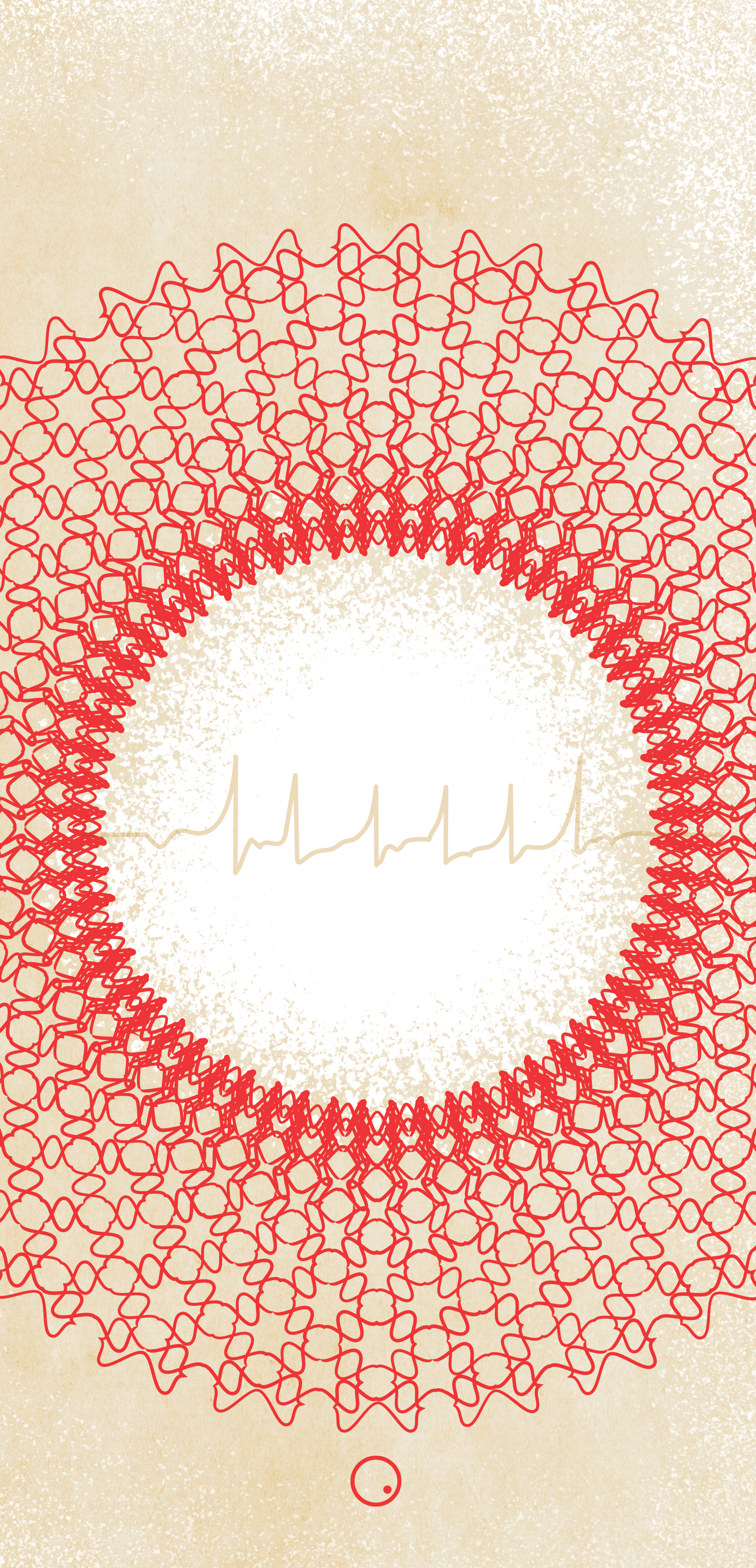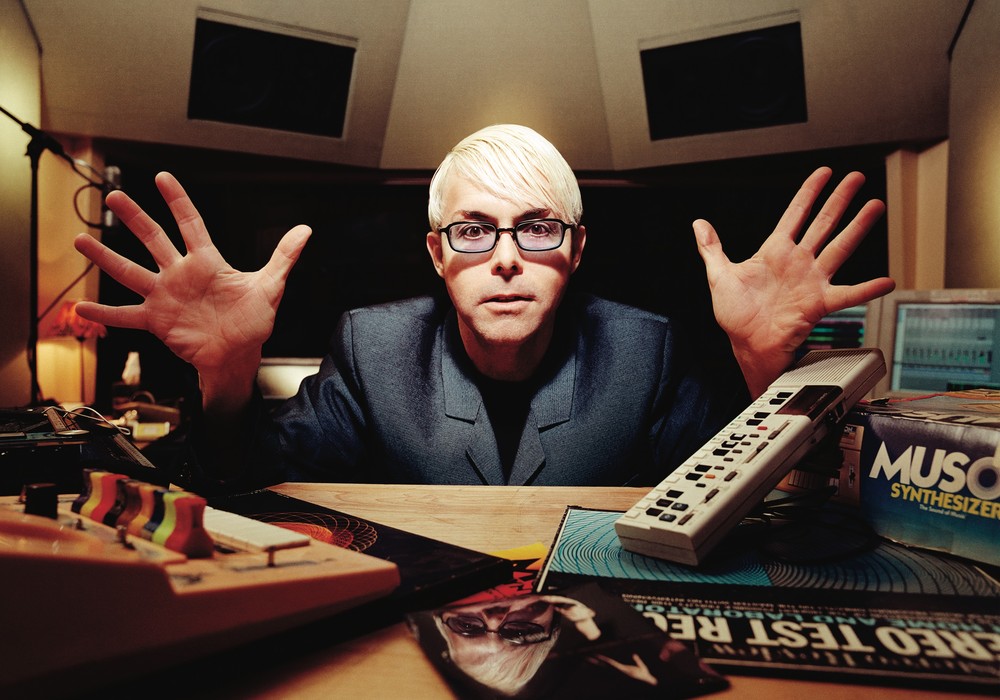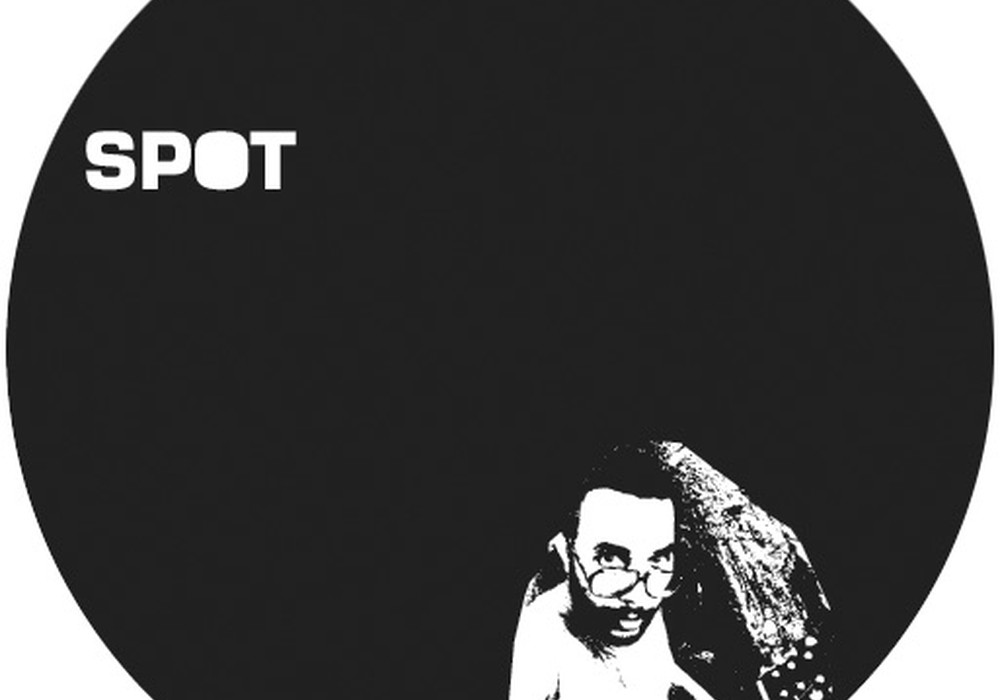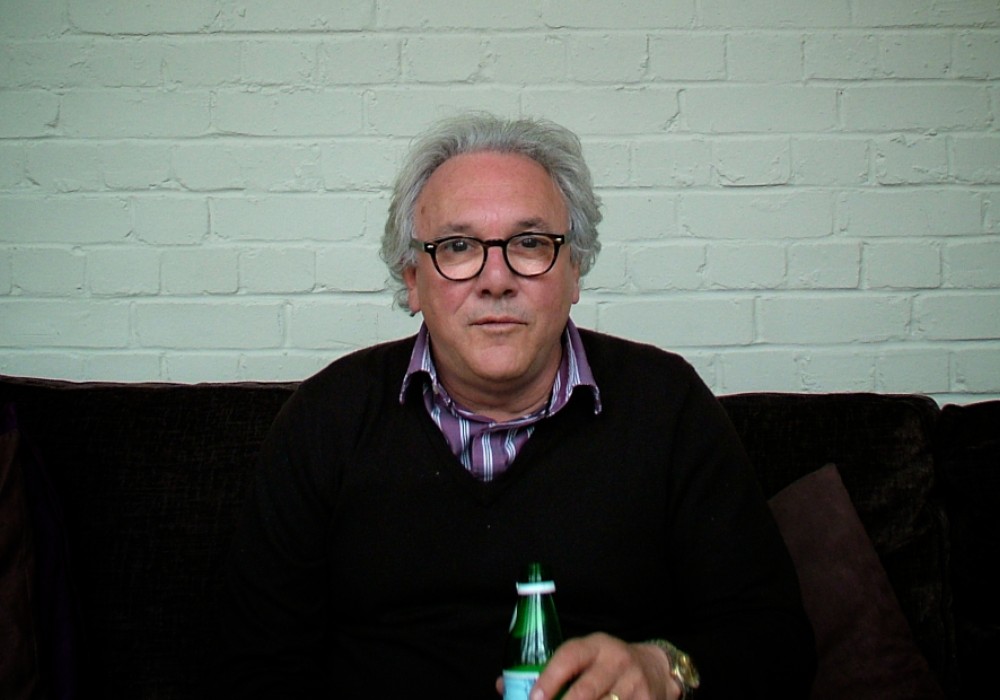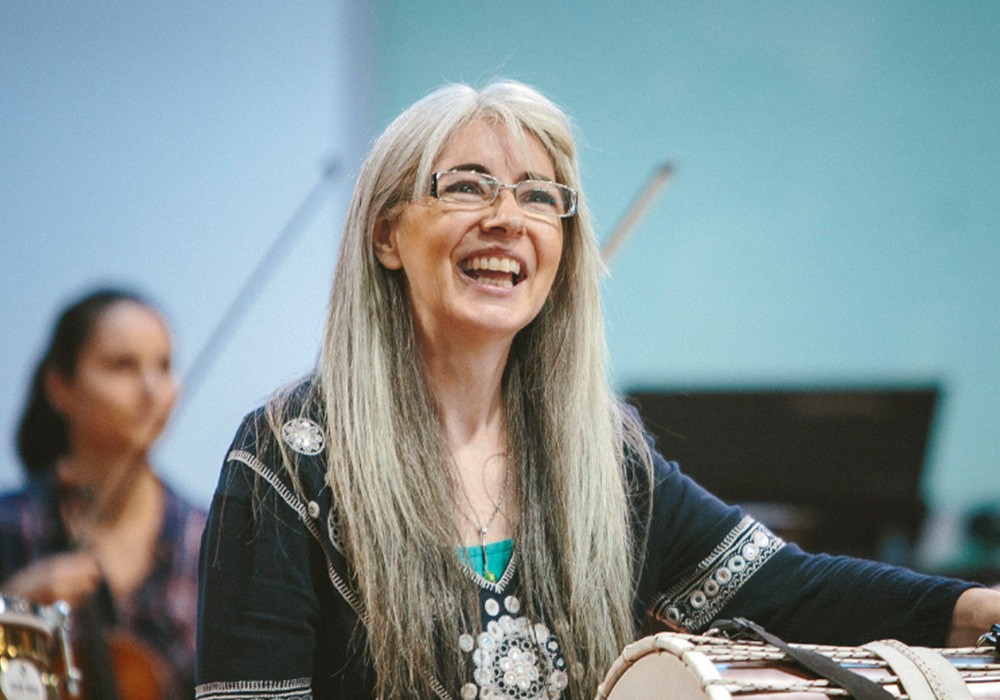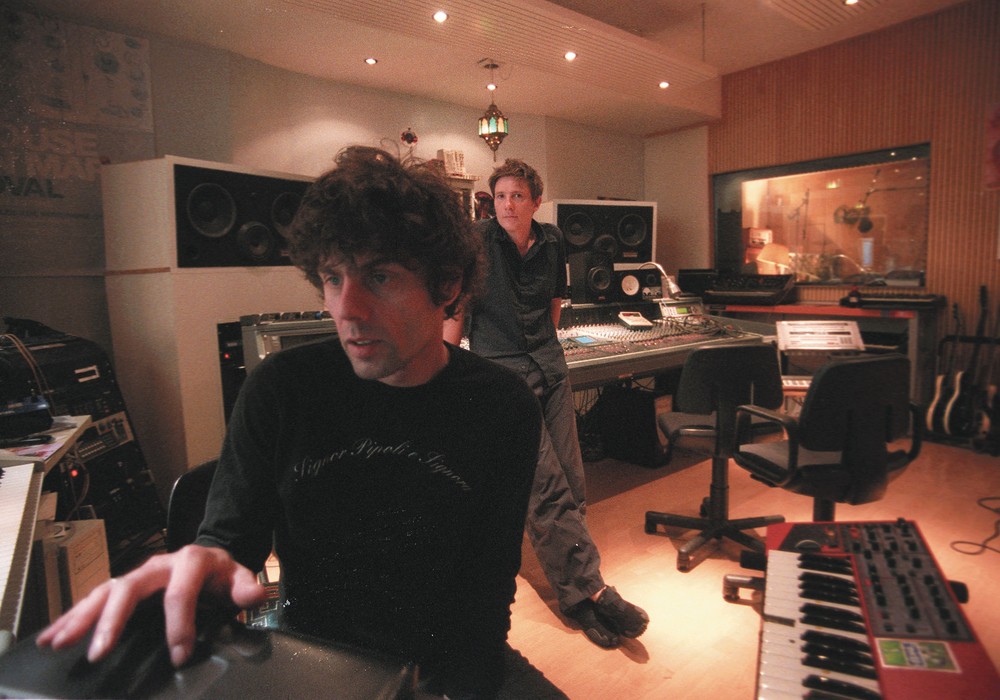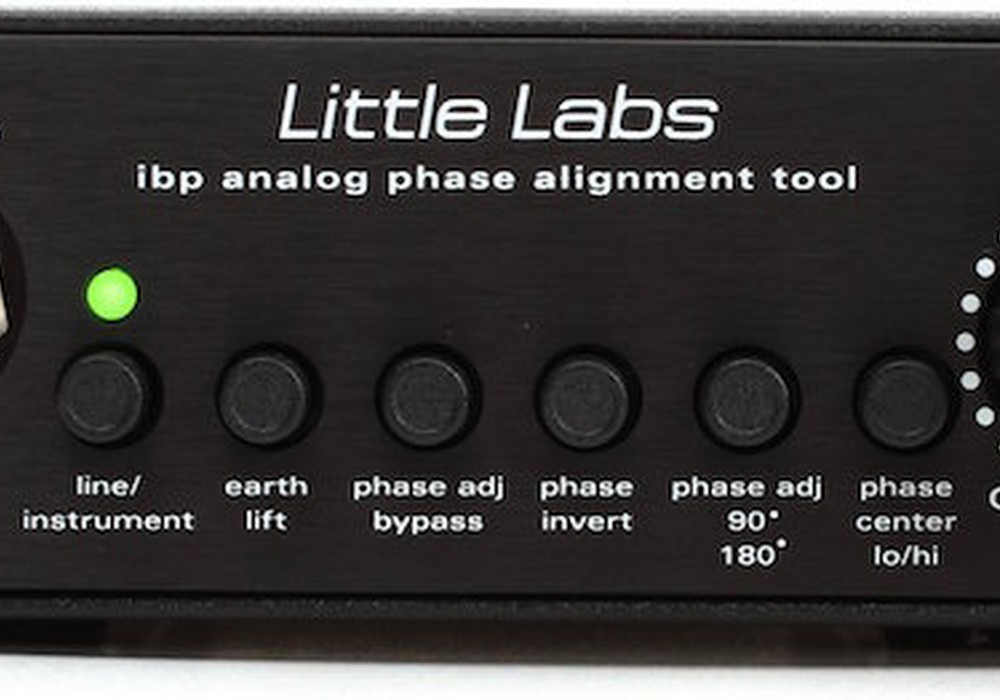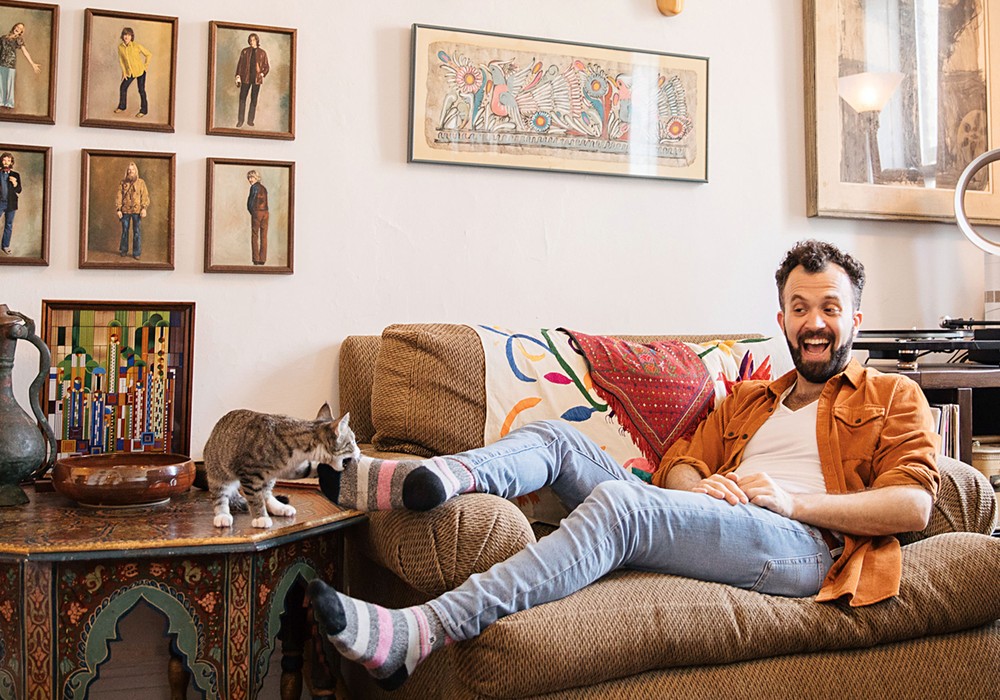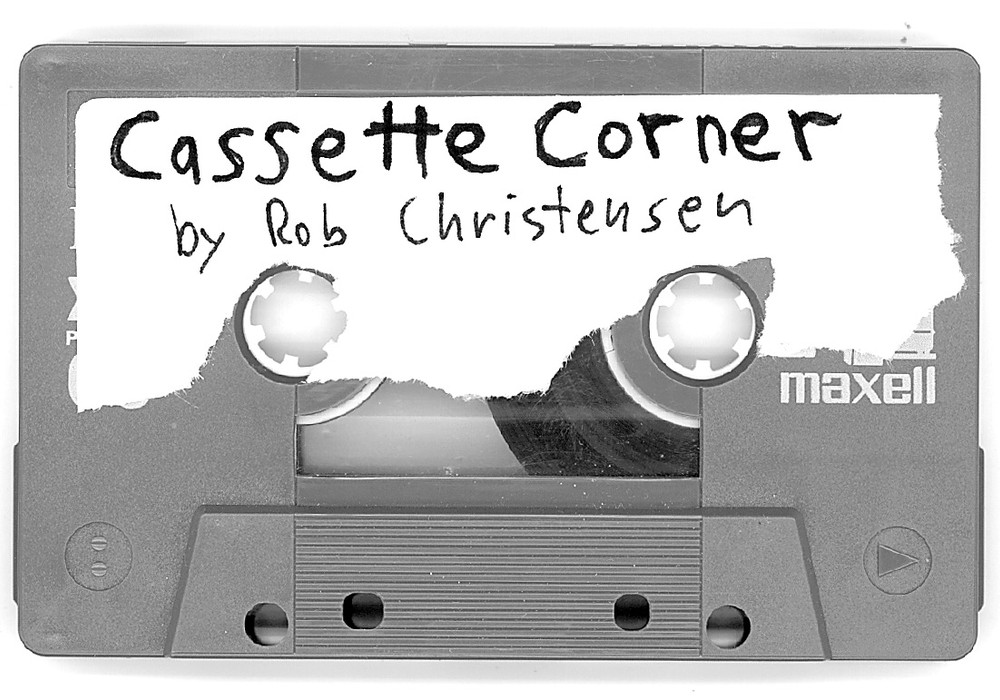About six years ago I introduced my friend Rob Leickner to my friend Colin Stewart. I had no idea at the time, but that introduction would lead to the creation of Vancouver, BC's fastest growing project studio. After all of these years, the Hive Project recording studio has dropped "project" from their name. With the addition of the Radar 24 system, the Otari MX-70 16-track, dedicated spring reverb and many other wonderful bits of gear, the Hive has finally arrived.
First off, let's get a little background. How and why did The Hive happen?
Rob: The Hive happened because we didn't have nepotism or connections on our side. It was Colin Stewart, Jim Routhier and myself [Rob Leickner]. They had just graduated from recording school and they wanted to get involved with music somehow. I had just come back from Korea (teaching English) and I had a bit of money to invest. We all had the same philosophy about music. "Substance Before Style" At the time [January 22, 1996] we were really into lo-fi stuff. It was pretty modest in the beginning — Colin and Jim's Basement... we call that Hive A. Travis Lacombe, who is our newest partner, came into the picture about a year later. He had a great collection of vintage keyboards and a love of the same type of music that we had and still have.
How much has the gear collection grown since the beginning?
Rob: When we first started we had one ADAT, a Mackie 24 x 4 board a few SM57s, a couple of ATM25s, an AKG D112, one Alesis Midiverb and a cheap dbx compressor. Six months later we got another ADAT. Eventually we realized that the ADATs sound terrible, so we bought a one inch Otari MX-70 16-track. We also got a real good deal on a TL Audio tube EQ/preamp, a Korg tape echo, and an Ampex ATR800 1/4' mastering deck. So it seems that we became analog purists. However, we just bought a Radar 24, which is the best sounding digital we've ever heard' we're not totally closed minded. We still have absolutely no desire to get a digital console. All the controls have to be instantly accessible at all times!
Most of the recordings that come out of the studio have a certain smart and laid-back quality to them. Is this a special aesthetic that you look for in a band?
Rob: Well, we feel the bands should have things figured out before they come in here. We aren't the type of studio that is going to be cutting and pasting stuff for hours on the computer. We are more documentarians than plastic surgeons. That approach is fine, and I like a lot of albums that are done that way like Stereolab's Dots and Loops, but we just don't operate that way. When we have tried to do things like that but we have found it to be more soul destroying than artistically enhancing.
Do you record anybody who wants to make music, or only bands you know you can handle listening to for 10 hours a day?
Colin: We've been through our training stage. We would record anything and anyone that came through our door. Hopefully those days are done. I'm afraid that I just can't record something that I don't like. If I don't like it, I don't understand what the artist is trying to accomplish, so it's not in my benefit or their's for me to work on it. To be blunt, it will sound like shit. Still, I do think it's important for a young engineer to cut his teeth on anything that comes his way.
What is the longest recording or mixing session that the Hive has seen to date?
Colin: I'm not a big fan of driving myself into the dirt. I have done so before, but the end result always seems to suffer because of it. I think that 16 hours straight mixing a single song was the longest session I've ever done. That was not a great experience. I like mixing to be quick. I don't like using EQ or compression. Partly because we don't own the greatest EQs or compressors, partly because I'm not that great at using those tools, but mostly because I think you get the best sound from using a great microphone on a good instrument. Mixing should just involve sliding up the faders and panning a little.
Travis: I've had a recording session go on for 16 hours straight, never again. Long sessions are a bad idea for so many reasons, after about 8-10 hours you simply become useless. The longest mixing session was about 12 hours. Mixing is even worse, I don't think I'd want a mixing session go beyond 8 hours.
Name the Hive's desert island mic, and the desert island piece of gear.
Rob: Neumann KM184, UREI 1176
Colin: I love the 184s, but I have to say a [Neumann] U87, just because it's a little more versatile. I'd probably say FET47 if I could actually get my hands on one. Mics are everything to me! It would suck to be limited to a single one. As for the piece of gear, I'll choose the Radar 24. It sounds great, it's portable, and I'm going to need something to record the U87 onto.
Travis: I'm with Colin on the Radar 24. As for a mic, I'd have to say the Rode Classic II, but then again how can ignore the U87 or the KM184s for that matter.
What's coming up in terms of buying gear?
Travis: We just bought the Radar and are currently paying it off. We're also looking into buying a Presonus M-80, a rackmount box with 8 good mic preamps in it. It's supposed to sound great, and it's pretty cheap! We need preamps for a portable rig we're working on. We're going to have the Radar, a few other goodies, and the little Mackie console. Like this, we can go anywhere to track. We can't afford to get a new space any time soon. Artists get totally excited when we tell them that we can go and record vocals in their own living room.
What bands have you recorded lately?
Rob: We've been working with some of the more interesting indie bands in Vancouver. There's the Beans [loose, atmospheric post-rock], Radio Berlin ['80s post-punk, like Pornography era Cure], Jerk with a Bomb [multi-instrumentalist duo who write classic songs], P:ano [orchestral pop], and several others...
How do you get those wonderful drums sounds I keep hearing on the new stuff?
Colin: What's interesting is that I haven't really changed my recording style since the beginning. My old drum sounds were terrible! I think the ADATs were partially to blame, although a limitation in mic choices is probably the main culprit. I've also been lucky enough to record some pretty amazing drummers recently who actually know how to tune their drums. I like to use the fewest microphones possible. A typical setup would be KM184s as overheads, and the rest of the microphones are just there to add some more weight to the sound. Those 184s make the drum sound on their own. I use a D112 on the kick, 421s on the toms, and a SM57 on the snare. Your basic rock standard. I love 414s on toms too, and I recently got to use some ribbon mics in the room, and wow!' those added an amazing quality to the sound. Like I said before, I tend not to use compression if I can avoid it, but if I do I like to use a slow attack on the kick and snare. Like that you actually compress the tone of the drum, as opposed to the beater or stick hitting the skin. Of course you can also get a great raw drum sound with a single SM57 right above the kick drum, pointing at the snare and hi-hat. Then smack it hard to tape!
www.hivestudios.net
Terry Miles is from the band Ashley Park, on Darling/Kindercore/LooseUK Records.
Interviews | No. 54
Richard Barone: Beginning with The Bongos...
by Bren Davies
Contemplating the fullness of his schedule and the richness of his life in music, Richard Barone posits the notion that "a producer's work is never done." From his childhood days in Florida as The...
